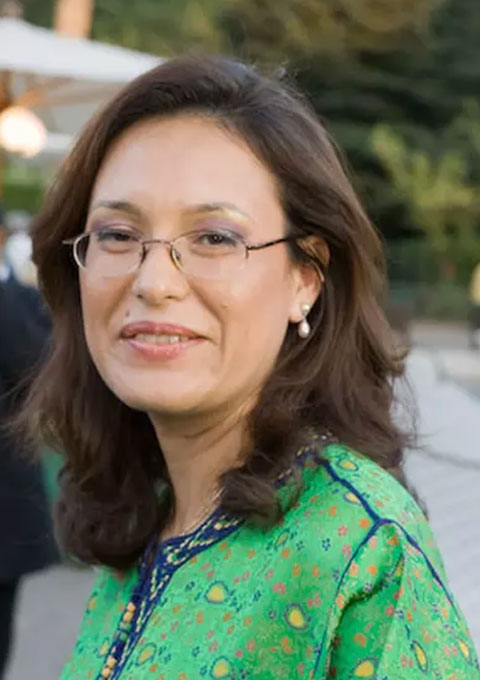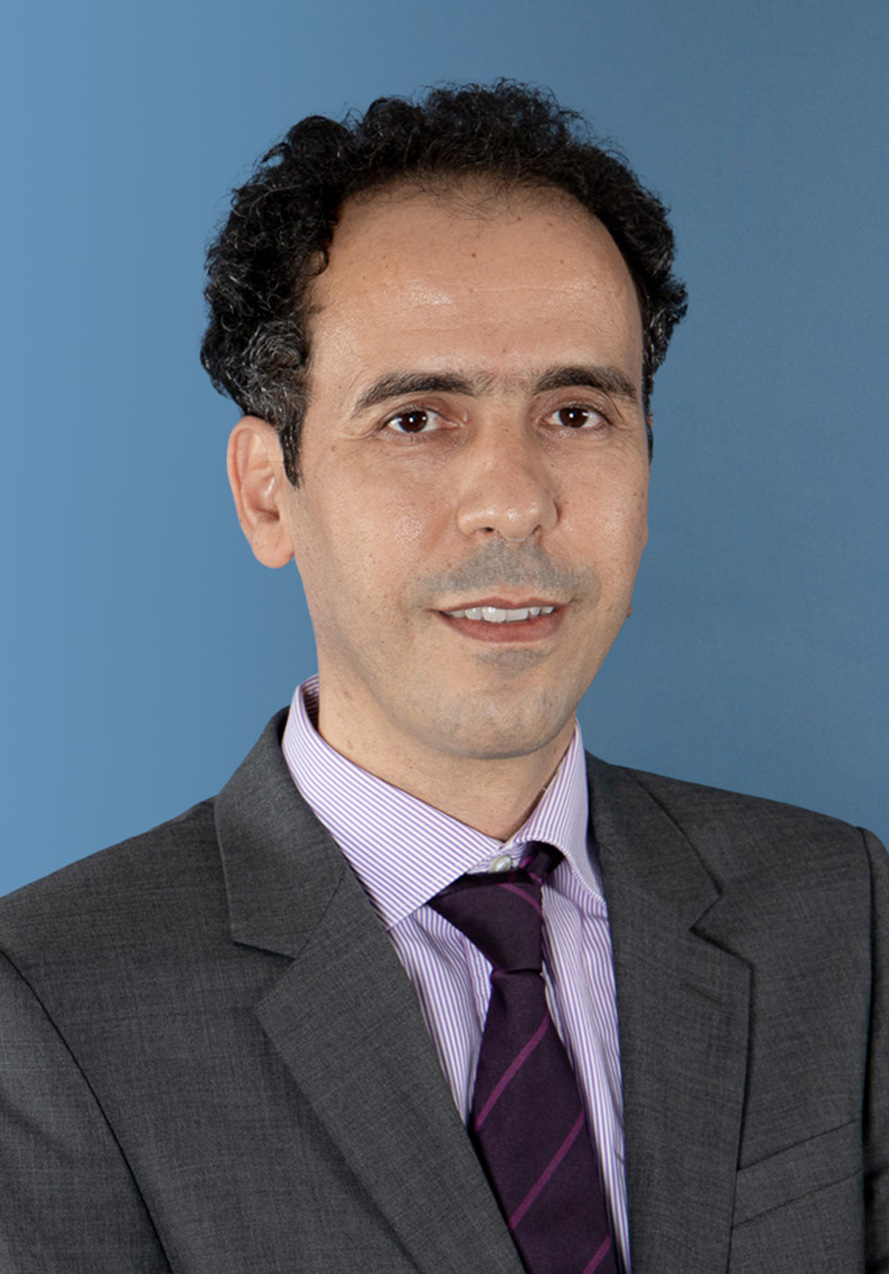APSACO 7ème édition - Discussion du rapport annuel sur la Géopolitique de l'Afrique / Mot de clôture
July 11, 2023
Chair: Mehdi Benomar, Head – Research in International Relations, Policy Center for the New South
Speakers:
- Jamal Machrouh, Senior Fellow, Policy Center for the New South
- Nezha Alaoui M’hammdi, Senior Fellow, Policy Center for the New South
- Sâ Benjamin Traoré, Assistant Professor, Mohammed VI Polytechnic University
- Hind Zaamoun, PHD Student, Mohammed VI Polytechnic University
Discussants:
- Guido Lanfranchi, Research Fellow, Clingendael
- Mahamadou N’fa Simpara, PHD Student, FSJES, Rabat
Closing Remarks:
- Karim El Aynaoui, Executive President, Policy Center for the New South
Speakers

Nezha Alaoui M’hammdi
Senior Fellow
Mrs. Nezha Alaoui M’Hammdi is Senior Fellow at Policy Center for the New South (since 2020) and the current Ambassador of His Majesty the King of Morocco to Ethiopia and Djibouti since 2016. She has served as first Permanent Representative of the Kingdom of Morocco after its return to the African Union by 2017, and to the Peace and Security Council of the AU (April 2018). She is currently Dean of the Council of Arab League Ambassadors to Ethiopia
She also served from 2013 to 2016 as an Ambassador of Morocco to Ghana, Togo and Benin, being the first Moroccan female Ambassador of the Kingdom of Morocco in Africa.
After joining the Moroccan Ministry of Foreign Affairs of Morocco in 1989, Mrs. Nezha Alaoui M’Hammdi served mainly in Italy and Ghana.
During her assignment, from 2 ...

Mehdi Benomar
Head – Research in International Relations
Mehdi Benomar has cumulated 18 years of experience as analyst and occupied several positions in public organizations: in National Defense as head of division (2000-2008), in the cabinet of the ministry of Mines and Energy (2010-12) and in OCP Group (2012-2017). He also served as senior consultant in private firm Global Intelligence Partners (G.I.P.) (2008-2010) in Rabat. He specialized in strategic monitoring issues and contributed on different topics related to proliferation, energy and development in sub-Saharan Africa. Nuclear Engineer, he graduated from the Commissariat à l'énergie atomique et aux énergies alternatives and has a master in sciences.
...

Karim El Aynaoui
Executive President
Karim El Aynaoui is Executive President of the Policy Center for the New South. He is also Executive Vice-President of Mohammed VI Polytechnic University and Dean of its Humanities, Economics and Social Sciences Cluster.
Karim El Aynaoui is an economist. From 2005 to 2012, he worked at the Central Bank of Morocco where he held the position of Director of Economics, Statistics, and International Relations. At the Central Bank of Morocco, he was in charge of the Research Department and equally a member of the Governor’s Cabinet. Previously, he worked for eight years at the World Bank as an Economist for its regional units of the Middle East and North Africa and Africa.
Karim El Aynaoui has published books and journal articles on macroeconomic issues in developing countr ...

Guido Lanfranchi
Research Fellow, Clingendael
Guido Lanfranchi is a research fellow at Clingendael’s Conflict Research Unit (CRU). He contributes to CRU’s Horn of Africa programme, focusing on Sudan, Ethiopia and Somalia. Guido’s research interests revolve around the interplay between economic, political and security dynamics, with a focus on how economic interests and business elites shape governance arrangements and conflict patterns. Guido also conducts research on geopolitical dynamics in the Horn of Africa, including the engagement of various foreign powers (Russia, China, Arab Gulf states, etc.).
Guido holds a master’s degree in International Security from SciencesPo Paris and a bachelor's degree in International Studies from Leiden University. Prior to joining Clingendael, he interned at the Council of the EU, whe ...

Jamal Machrouh
Senior Fellow
Jamal Machrouh is Senior Fellow at the Policy Center for the New South where he focuses on Geopolitics and International Relations issues, as well as Adjunct Professor at the Faculty of Governance, Economic and Social Sciences of the Mohammed VI Polytechnic University (UM6P). He is also professor of international relations at the National School of Business and Management, Ibn Toufaïl University, Kénitra.
Mr. Machrouh is lecturer at the Royal College of Advanced Military Studies of Kénitra and at Södertörn University of Stockholm, Sweden. He is the author of a book titled Justice and Development under World Trade Organization and of various articles dealing with international relations and geopolitics.
...

Sâ Benjamin Traoré
Professor of Law, Faculty of Governance, Economics and Social Sciences, Mohammed VI Polytechnic University (FGSES-UM6P)
Professor Traoré holds a Doctorate in Law from the University of Neuchâtel (Switzerland), an LLM in International Law from the Geneva Academy of International Humanitarian Law and Human Rights and a Master in Public Law from the University from Ouagadougou (Burkina Faso). Prior to joining UM6P, Prof Traoré worked as the Project Manager for the African Coalition for Corporate Accountability (ACCA). His work and research focused on the role of law in regulating business-related human rights and environmental impacts in Africa, traditional fields of international law and international relations, peace and security in Africa, human rights, international humanitarian law as well as the law related to refugees and internally displaced persons. He has published many academic articles ...

Hind Zaamoun
PhD Student, Mohamed VI Polytechnic University
Mrs. Hind Zaamoun is a PhD student at Mohamed VI Polytechnic University. She holds a master’s degree in international relations from University of Turin (Italy). She previously held the position of research assistant at the UM6P. Her current PhD project explores the impact of the geopolitical dynamics on peacebuilding implementation in the context of the Democratic Republic of Congo. Her area of interest include: conflict resolution, post-conflict transitions, peacebuilding and DDR processes.
...






